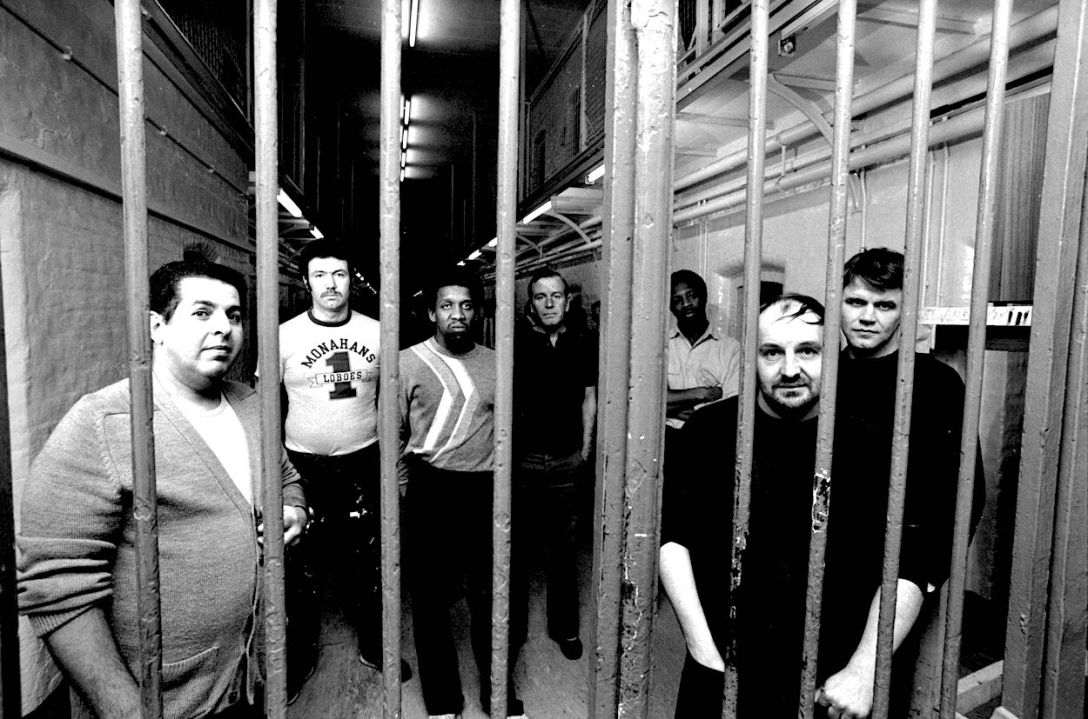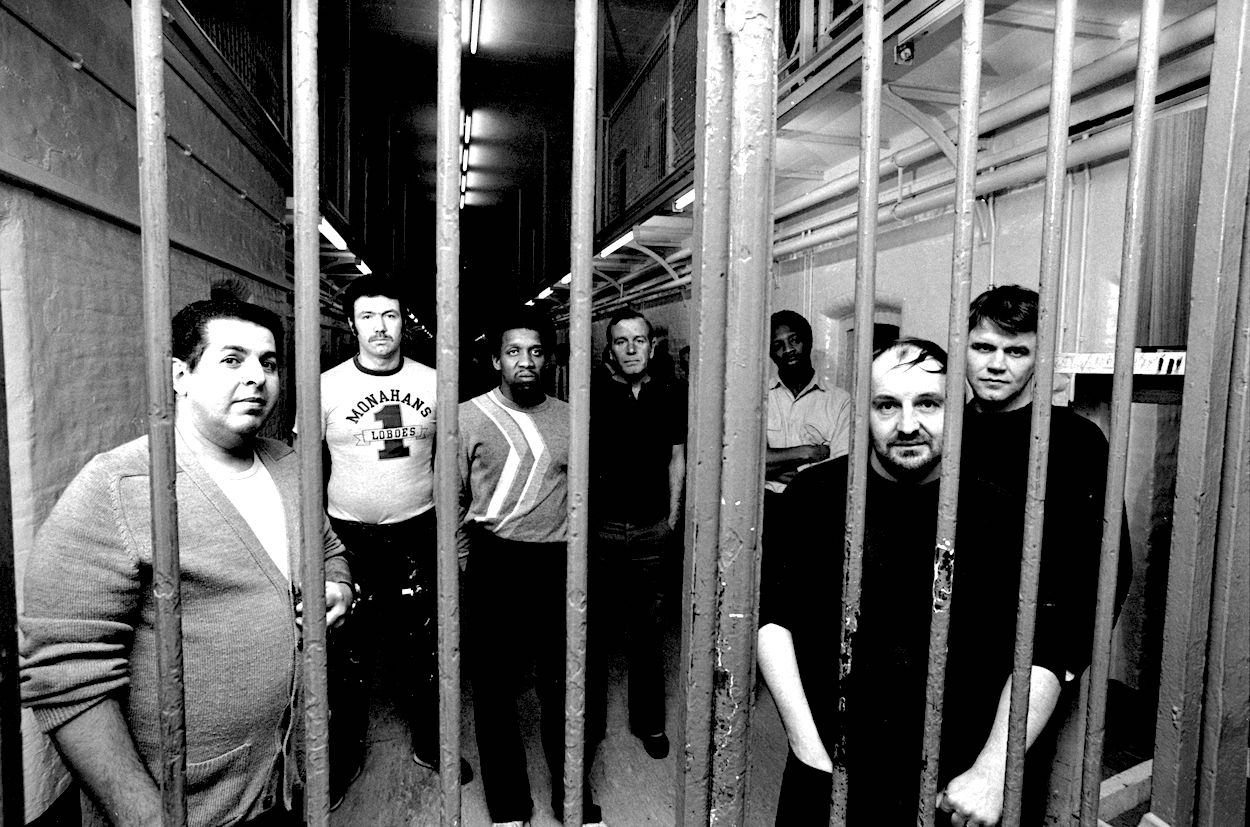Some 91 prisoners have been freed by mistake between April and October of this year, according to government figures released last week. Normally I’d be joining in the full-throated chorus of exasperation, as I do with the fresh clown shows that Labour thoughtfully provide every couple of days. But I’m a bit quieter about this particular debacle, because I have some of that highly valued contemporary quality – lived experience – in this matter. You see, in my duties as a lowly clerk at the Court of Appeal in London, I once accidentally released someone from prison.
This was 37 years ago, to be fair to myself, and the offender in question was serving a very short sentence. But it’s the kind of thing you don’t – indeed can’t – forget. My flub, committed at about the time when ‘Theme From S’Express’ was number 1, and people thought Andrew Mountbatten-Windsor was settling down, retains its emotional kick. The moment of my what-have-I-done realisation is one of those sensory impressions that burns into a person – a prickling across the back of the neck, a plummeting down a lift-shaft, legs turning to jelly etc. I can still hear the gasps of my co-workers as it hit them a few seconds later. Just recalling it for this piece has given me nightmares.
Let me explain some of the background. I’ve no idea if the process is the same nowadays, but back then if an offender had been given a short sentence, any appeal against that sentence was, necessarily, expedited. The case documents and their barrister’s plea were bundled up pronto and whizzed in front of a judge; sometimes there’d even be an emergency hearing in a judge’s chambers, if the lag could afford a barrister to plead in person. The normal appeals process, usually grindingly slow, was rushed through ‘at pace’ as we say nowadays. In a routine job these little bursts of occasional excitement count for a lot.
I was fairly new in my post, but I’d administered this procedure on several occasions without a hitch. I had relaxed, thinking, ‘I can do this automatically now, it’s quite simple really.’ As I learned, this is the most dangerous period; the overconfidence of youth met the complacency of routine.
There’s something pleasant about releasing somebody from jail. You feel powerful and beneficent. People are pleased to hear from you. Telling people over the phone to ‘Go ahead,’ when they are hanging on your words is a good feeling, particularly in a job when you were usually greeted with a groan. A large part of my job involved chasing other people to do their jobs. ‘It’s Mr Roberts,’ I once heard someone say to a colleague off-receiver, in the same heavy-sigh tone they might say, ‘that boil on my backside is back again.’
I’d been one of those dreadful very cooped-up, indoorsy teenagers. This was my first proper job and it provided a dizzyingly speedy processes of adult socialisation. Suddenly, at 19, I was racing up and down corridors and having to speak, formally and informally, to absolutely everybody, from the extreme opposite ends of the social ladder, on matters of great import to them. On one of my prior emergency bail hearings, a judge spluttered to me that it was outrageous that the rich could skip the queue like this. I had to simultaneously tug the forelock and remind him that I agreed that it was, but whatever we thought, it was also the law. In my first week in the job I had to gently remonstrate with an MP, and try to calm down a mother who feared separation from her kids.
What actually happened on this occasion? I simply forgot one of the essential stages of the process; that when bail was granted, you had to wait for a call from the police to confirm that the bail address checked out. Only then could you phone the prison and give them the nod to release the offender. I got back from the hearing, rang HMP Brixton, and gave them the nod – set him free! It was only then that the police called to say that they’d checked the address – and it had turned out to be a bloody caravan, and not a static one. Anything on wheels, you will not be surprised to hear, is not acceptable as a place of semi-arrest. Cue my heart rate thumping up to 200 bpm.
I got an extreme bollocking
The boss of my section was a mature, even-handed Christian gentleman of the old school. We youngsters liked him a lot, though he was given to saying things like, ‘But why would the police lie?’ which we considered staggeringly naive. But I had cause to thank the good Lord it was him in charge that day. He looked my distressed self up and down, emitted a sigh, said ‘well, you won’t do it again, will you,’ and lifted the problem away from me. It was as if a dove had descended from a break in the blackest storm clouds. An alternative address was provided and all was well. I got an extreme bollocking from the Big Boss, and that was that. I had the excuse of youth; being a young fool is a lot better than being an old fool.
Some 37 years ago, this incident – the freeing of a very minor offender a few days early – was an extreme rarity, and a Big Deal. When systems fail all round, as they have today, with serious criminals let out willy-nilly, it seems that nobody particularly notices; David Lammy’s statement to the Commons was notable for some doubt about whether one of the 91 was still incarcerated or not. If everyone’s doing it – whoops, but who cares?









Comments